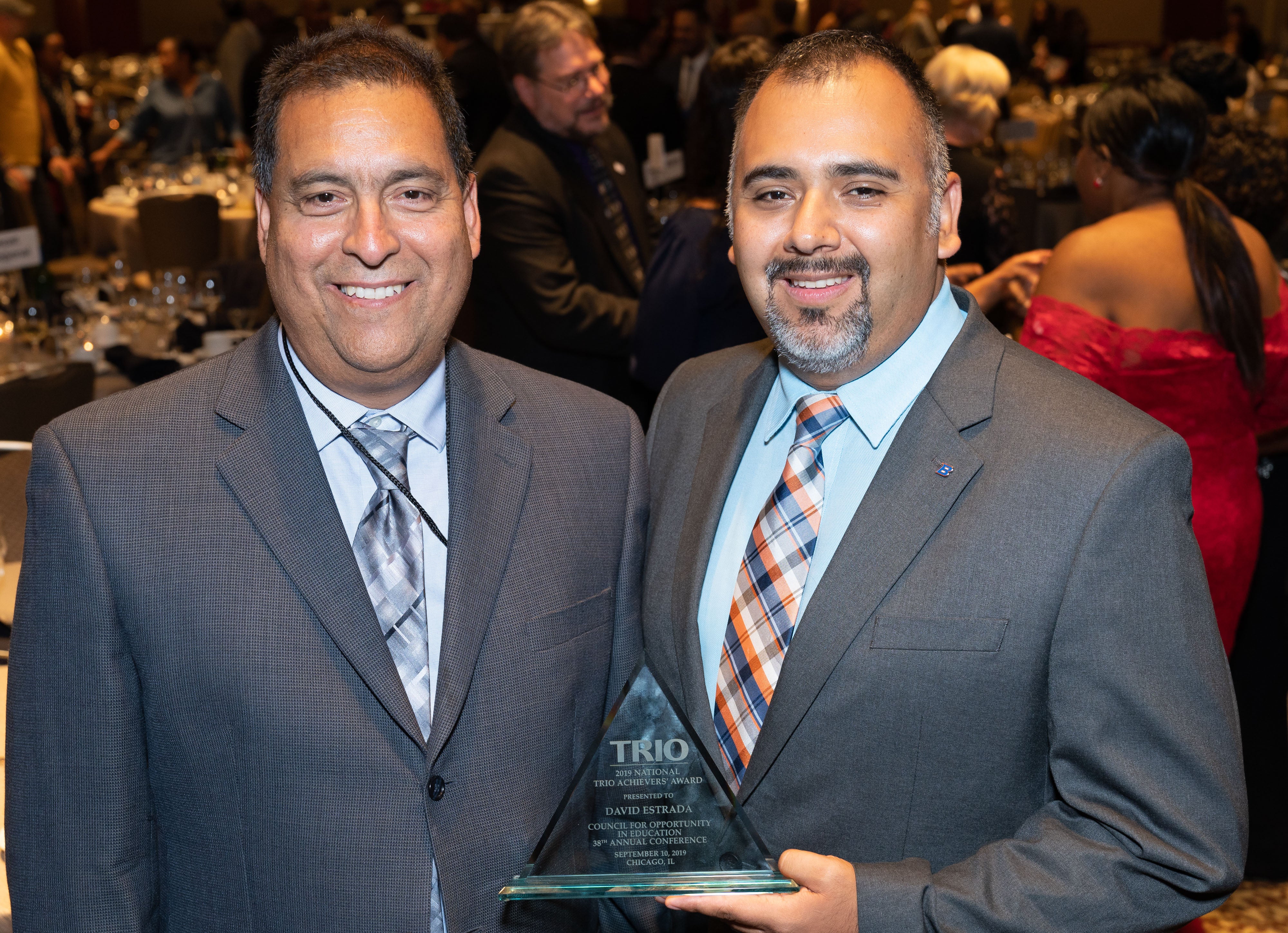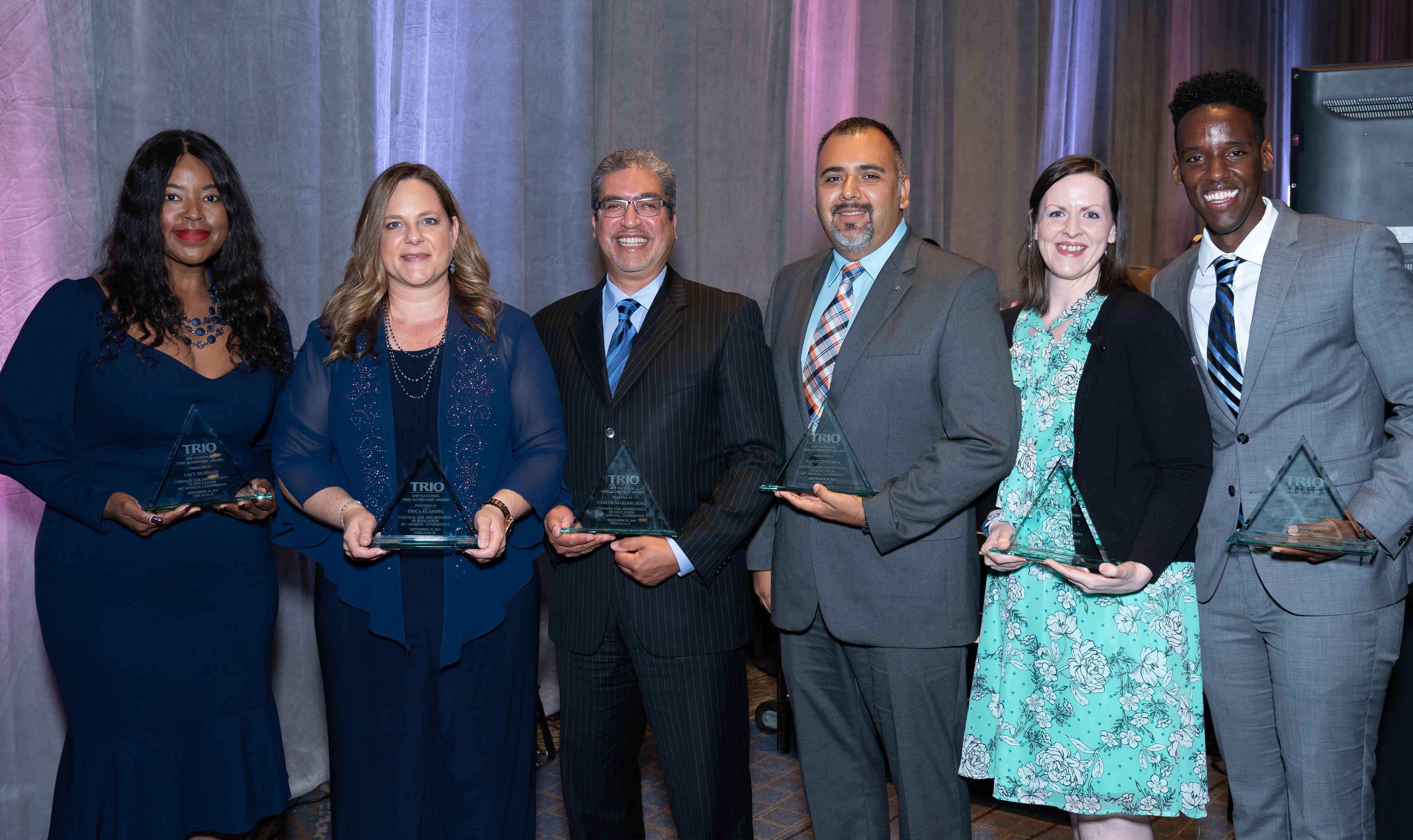
Dave Estrada, the associate director for Boise State’s Center for Advanced Energy Studies, has been recognized by the Council for Opportunity in Education for the outstanding contributions he has made to his profession as a first-generation college student.
The council recognized Estrada as one of six 2019 National TRIO Achievers, so named for the federal TRIO college access and support programs that have been helping low-income, first-generation students and students with disabilities succeed in college for more than 50 years.
“Since these alumni became first in their family to earn college degrees, they have gone on to make outstanding contributions to our country’s progress,” said Maureen Hoyler, Council for Opportunity in Education president. “It is an honor to acknowledge former TRIO students who inspire others through their example.”
Estrada’s story is one of resilience and extraordinary determination. It began when his parents immigrated from Mexico to Idaho in the early 1960s.
“My father grew up in poverty, quitting school at around age 7, and my mother was not able to finish high school. These experiences motivated my parents to spend their lives working to provide opportunities for their children that they never had,” said Estrada.
The family worked as farm laborers, and eventually all six Estrada children graduated from high school. David was awarded a full-ride scholarship by the Navy ROTC program to attend the University of Michigan, but his lack of preparation for college ultimately resulted in his withdrawal from the university.
“I didn’t understand that applying for scholarships wasn’t the same as applying for admission,” he said. “I arrived in Ann Arbor without admission to the university or a place to sleep.”
Estrada spent one homeless week working to gain admission to Eastern Michigan University so he wouldn’t lose his scholarship. “However, my lack of preparation for such an intense college experience resulted in a failure to succeed in the NROTC program.”
Faced with paying back two years of college funding, Estrada served in the Navy for six years, much of that time overseas. He recalled what pushed him to return to his goal of achieving higher education.
“I was in East Timor helping to rebuild schools after their civil war and saw such despair – but also hope,” he said. “It was the first time in my life I really understood that for many people around the globe, the pursuit of education involved great personal risk, but one they were willing to take for the opportunity to go to school. I was no longer content with just serving my country. I felt a responsibility to better serve humanity.”
After receiving an honorable discharge from the Navy, Estrada returned to Idaho to pursue a degree in electrical engineering at Boise State, where the McNair Scholars Program provided the support and preparation he needed to succeed. Professor Bill Knowlton of the Micron School of Materials Science and Engineering served as his faculty mentor from 2005-2007.
“In the spring of 2007, I became the first in my family to earn a college degree. In the spring of 2013, I received a doctorate from a top-five ranked engineering graduate program. Without the knowledge and preparation I gained through the McNair program, I’m not sure if I would have accomplished those goals,” Estrada said.
